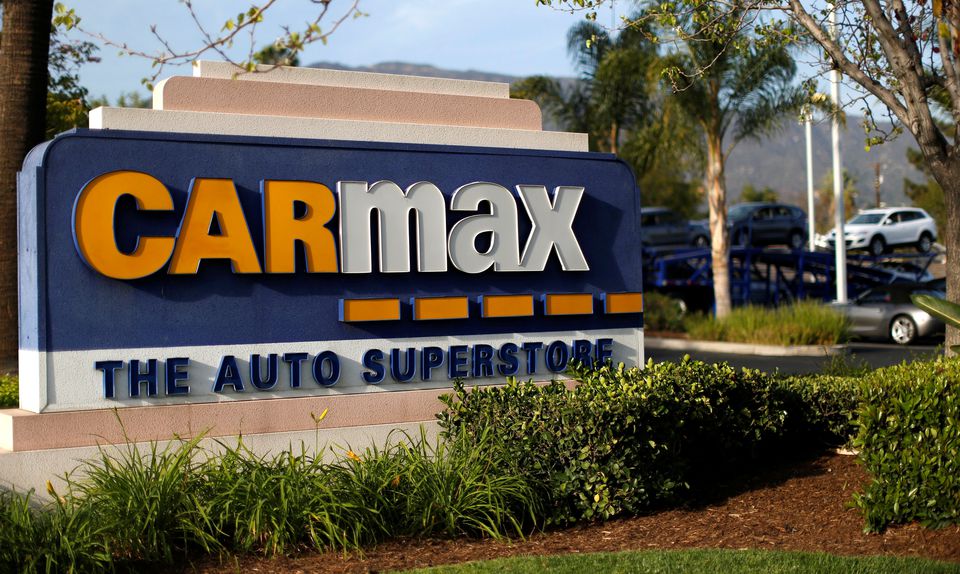Dec 22 (Reuters) – Used-car retailer CarMax Inc (KMX.N) said on Thursday it was pausing some hiring, halting share buybacks and cutting expenses after reporting an 86% drop in third-quarter profit as the industry struggles to offload inventory amid waning demand.
The company’s shares fell as much as 12% to $52.10 and were at more than a two-and-a-half year low, dragging other auto retailers down with it.
The used-car industry, which minted money during the pandemic, is now struggling to sell cars at or above the prices it bought them as consistent rate hikes and decades-high inflation take a toll on demand.
“CarMax is battling a used-vehicle recession,” Evercore ISI analyst Michael Montani said, adding that pressure on wholesale sales intensified from the second quarter.

In response to challenging industry conditions, CarMax said it slowed car buying in the third quarter and cut marketing and capital expenditures.
CarMax is also lowering its staffing “from an attrition basis” and paused hiring in its corporate office to cut costs, Chief Financial Officer Enrique Mayor-Mora said during an investor call, adding that some actions may carry into the next year.
The company also halted share buybacks, CarMax said but added it remains committed to returning capital back to shareholders over time.
“Given third-quarter performance and continued market uncertainties, we are taking a conservative approach to our capital structure,” CarMax said.
CarMax reported retail and wholesale used-vehicle unit sales were 298,807 in the quarter through November, down 28% from a year earlier. It also bought about 40% fewer vehicles in the third quarter.
The company reported net income of 24 cents per share, compared with estimates of 70 cents, according to Refinitiv data.
CarMax’s revenue fell about 24% to $6.51 billion, below estimates of $7.29 billion.
Shares of other car retailers such as AutoNation Inc (AN.N) and Carvana Co (CVNA.N) were down between 1% and 2%.









